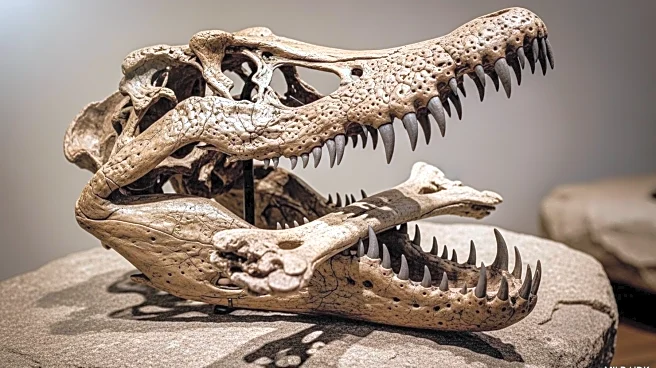What is the story about?
What's Happening?
A new species of dinosaur, Joaquinraptor casali, has been discovered in Patagonia, Argentina, with a crocodile's leg found in its jaw. This megaraptor, dating back 66 million years, was unearthed in 2019 and is believed to have been a fierce predator of the Cretaceous period. The discovery was made by Lucio Ibiricu and his team from the National Scientific and Technical Research Council in Chubut, Argentina. The fossil includes a near-complete skull, vertebrae, feet, claws, and limbs, with the thumb claw being notably large. The dinosaur is estimated to have been 7 meters long and weighed at least a tonne. This find is significant as it provides a rare glimpse into the diet and predatory behavior of megaraptors, which were apex predators in their ecosystems.
Why It's Important?
The discovery of Joaquinraptor casali adds to the understanding of megaraptor evolution and their ecological roles during the Cretaceous period. This species, with its unique physical attributes, highlights the diversity of predatory dinosaurs and their adaptations for hunting. The presence of a crocodile's leg in its jaw suggests complex predator-prey interactions and provides evidence of the dietary habits of these ancient creatures. Such findings can help paleontologists reconstruct the ecosystems of the past and understand the evolutionary pressures that shaped the development of large carnivorous dinosaurs.
















